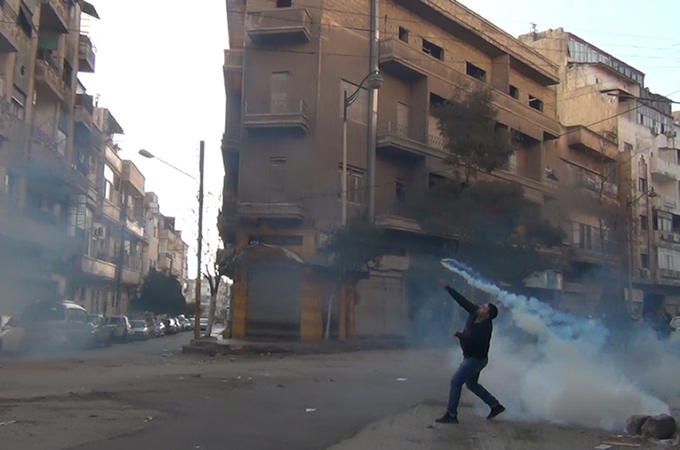By: Hibberd Kline
Impunity Watch Reporter, Asia
BEIJING, China – On Monday, an intermediate level people’s court in Guiyang, the capital of China’s southwestern Guizhou province, sentenced 57 year-old activist Chen Xi to ten years in prison for “subversion of state power” and “inciting subversion of state power.”

The court also announced that Chen will be “deprived of his political rights” for three years.
According to a statement by Amnesty International, neither “subversion” or “incit[ing] others to subvert state power,” which are common charges leveled against activists in China, is adequately defined by Chinese law or related regulatory interpretations.
Chen Xi is a former soldier and factory worker, who was previously jailed for three years in 1989 for his support of the student protests in Tiananmen Square. Chen served an additional ten year jail term from 1995-2006 for “organizing and leading a counter-revolutionary group.” Chen is also a prominent member of Guizhou Human Rights Forum, which was outlawed inside China on December 5.
Chen’s conviction follows his arrest on November 29 in what activists claim to be a response to his authoring 36 online articles critical of the state and Communist party. The articles were published both domestically and abroad and called for political reform and improvement of human rights inside China. Chen has also recently incurred the ire of officials by campaigning for the election of independent candidates to the local people’s congress.
Chen Xi’s sentence is one in a series of lengthy prison terms recently handed down to human rights activists by Chinese authorities. Many analysts believe that the arrests, speedy trials, and imprisonments have been deliberately timed to coincide with an annual window of low-key diplomatic activity in the West during the Christmas holiday in order to minimize criticism.
The trial reportedly lasted only a few hours and was punctuated by frequent interruptions of the defense counsel by the judge, whom Chen’s wife, Zhang Qunxuan, claims ignored every point made in Chen’s defense. Though Chen was able to express his contention that he was innocent of all charges, he was prevented from reading out his final statement to the court. According to Zhang, the judge pointed out that Chen was a “repeat offender” deserving of a long prison sentence and said that Chen’s crime was “major” and “had a malign impact.”
Chen Xi’s family was informed of his trial on Saturday. However, according to Zhang the authorities refused to inform her what her husband had been charged with, citing rules against sharing information with family members. Additionally, the family was instructed that only three family members would be allowed to attend the court’s proceedings.
Many activists have suggested that the speed and consistency of the results of the Christmas trials prove that the trials were merely for show and that the verdicts were predetermined.
During the past year, Chinese authorities have clamped down on free expression and have arrested more than 130 activists and human rights lawyers. The government’s crackdown has come largely as a response to the popular pro-democracy protests that broke out across the Middle East. Authorities fear that the “Arab Spring” may spark copycat uprisings, which could undermine governmental authority in China.
Last winter, calls for a “Jasmine revolution” in China did circulate on the internet. However, the online pleas drew little visible support inside China and did not succeed in bringing about any large-scale protests.
Nonetheless, the Chinese Government has continued to tighten its control over free-expression, especially on the internet. The state has strengthened its nationwide firewall to further reduce the number of potentially “subversive” websites available for domestic consumption and has installed new monitoring equipment at many internet cafes.
Additionally, Chinese authorities have tightened restrictions on popular social networking service Twitter, which has been used around the world to advocate and coordinate protests against national governments. Though the use of Twitter in China is officially prohibited, many Chinese have found ways to access Twitter by circumventing the firewall through the use of private networks or other means. Accordingly, many large cities, including Shanghai, Beijing, Guangzhou and Shenzhen, have recently passed laws requiring domestic Twitter users to register for the service using their real names. However, enforcement of the new laws may prove difficult.
The United States has been joined by the EU and several human rights organizations in repeatedly criticizing China’s decreasing tolerance for dissent. On Monday, UN human rights chief Navi Pillay criticized the Chinese judiciary following the sentencing on Friday of human rights activist Chen Wei to nine years in prison.
Like Chen Xi, Chen Wei was also charged with “subversion” after engaging in political speech critical of the Chinese government on the internet. Pillay called Wei’s sentence “extremely harsh” and indicative of a “further tightening of the severe restrictions on the scope of freedom of expression in China that has been seen over the last two years.” Pillay called upon China to release “any person detained for exercising his or her right to freedom of expression.”
During his trial, Chen Wei asserted that he had merely exercised his right to free expression, which is protected by China’s constitution. Both Chen Xi and Chen Wei claim that the one-sided nature of China’s legal system make appealing their verdicts futile.
Though the two activists are not as well-known as recent Nobel Prize winner Liu Xiabo, who was sentenced to eleven years in prison in 2009, both activists have held prominent positions in human rights movements inside China. Additionally, both Chen Xi and Chen Wei joined Liu Xiabo and thousands of other activists in China in signing the so-called “Charter 08,” which called for political reform.
For more information, please see:
Aljazeera — China Jails Veteran Activist for Ten Years? — 27 December 2011
BBC News — China Imprisons Veteran Activist Chen Xi — 26 December 2011
The Guardian — China Jails Dissident Chen Xi for Ten Years — 26 December 2011
The Telegraph — China Continues Christmas Crackdown on Activists as Chen Xi Given Ten Years in Prison — 26 December 2011
Amnesty International — China: Harsh Sentence for Activist Chen Wei Condemned — 23 December 2011



